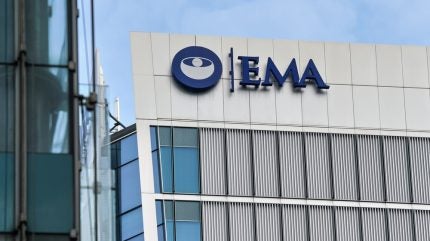
The European Medicines Agency’s (EMA) Committee for Orphan Medicinal Products (COMP) has given positive opinions for the awarding of an orphan drug designation to Attralus’s monoclonal antibody AT-02 in two of the most common forms of systemic amyloidosis.
Though the European Commission is not mandated to agree with the COMP’s opinion for orphan medicinal product designations, it historically follows suit.

Discover B2B Marketing That Performs
Combine business intelligence and editorial excellence to reach engaged professionals across 36 leading media platforms.
The US biopharma is now eligible for extra scientific advice on its drug, fee reductions, and the potential for ten years of market exclusivity, as per European orphan drug incentives.
Attralus’s AT-02, a pan-amyloid removal (PAR) therapeutic candidate, has been issued positive opinions in transthyretin-associated amyloidosis (ATTR) and immunoglobulin light-chain-associated (AL) amyloidosis—the two most common forms of systemic amyloidosis. AT-02 is currently being evaluated in a Phase I trial (NCT05521022) and a Phase II open-label extension trial in ATTR and AL amyloidosis patients.
The company, which raised $56m in February this year, stated its asset is the first therapeutic to receive positive orphan designation opinions for both ATTR and AL amyloidosis, according to a 29 July press release.
The current standard of care treatment for newly diagnosed patients with AL amyloidosis is a combination of anti-plasma cell agents, namely cyclophosphamide, bortezomib, and dexamethasone (CyBorD).

US Tariffs are shifting - will you react or anticipate?
Don’t let policy changes catch you off guard. Stay proactive with real-time data and expert analysis.
By GlobalDataSystemic amyloidosis is an umbrella group of rare diseases that occur due to a build-up of amyloid deposits in tissues and organs. The condition causes a range of symptoms including swelling, numbness and skin changes. Serious symptoms include bleeding and irregular heartbeats. The groups of diseases, comprising around 17 types, can be fatal.
AT-02 works by stimulating the body’s immune response to remove amyloid deposits. The candidate comprises a humanised immunoglobulin 1 (IgG1) monoclonal antibody genetically fused with a pan-amyloid binding peptide. The company presented positive preclinical data with the drug earlier this year, demonstrating its binding persists in amyloid deposits ten days after injection.
Attralus chief medical officer Gregory Bell said: “Currently approved therapies for systemic amyloidosis target precursor protein production, reducing the formation of new amyloid, but there is a significant unmet need for new therapies that can remove the existing toxic amyloid fibrils that cause organ damage and mortality.”
In January 2021, Johnson and Johnson Innovation Medicine won the first US Food and Drug Administration (FDA) approval for AL amyloidosis for Darzalex (daratumumab and hyaluronidase-fihj) in combination with CyBorD. The anti-CD38 drug works by stopping more amyloid from being produced. In February this year, England’s National Institute for Health and Care Excellence (NICE) recommended the use of the treatment on the NHS for AL amyloidosis patients.




